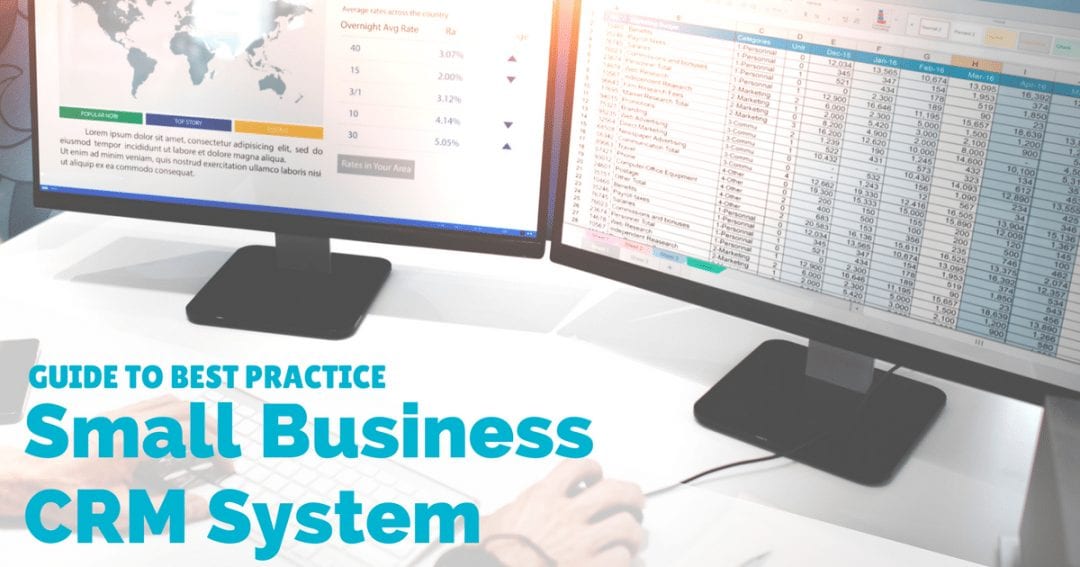Gathering customer data and knowing how to use it is one of the ways to business success – no matter what size you are. Why is it so important? Because the better you understand your customers, the more likely you are to be able to sell to them. That’s why we’ve put together this quick guide to CRM and small business customer relationships – best practice for businesses like yours.
Why use a CRM system?
If you don’t already have software that helps you to keep track of your customers, it’s a good idea to look into a system that might work for you. It doesn’t have to be expensive or complicated – in fact, there are a range of packages available that can help you manage your sales and marketing processes. Choosing the right small business CRM solution is the first step towards making your business more efficient and more successful.
How to make the most of your CRM
Good customer relationship management is about gathering useful data on existing and potential customers and using it in a way that helps you make more sales. Whilst the software can help you to collect the relevant data, and can often link with some of your other marketing channels in order to promote good quality messages, you will get the most from your CRM system if you follow industry best practice:
Collect the right data – you need to think about what you want to know about your customers. Other than their basic details, it might be important to know when they last bought from you, what their buying history is, whether there’s a time of the week, or time of the day when they are most likely to buy, or if they have special interests. Once you’ve started collecting the data, make sure it’s accurate and up-to-date. Nothing turns a potential customer off more quickly than realising you can’t be bothered to check you have the right information.
Get personal – today’s customers have high expectations of the communications they receive. They certainly expect them to be personal to them, so emails that start ‘Dear valued customer’ are likely to be ignored in favour of those that actually address them by name. To get this absolutely right, you might want to collect data on how they prefer to be addressed.
Choose the right channel – some people prefer to be contacted by phone; others may want to receive emails or be more receptive to promotions on social media. By knowing what each customer prefers, you can make sure you approach them in the way that’s best for them. This removes one of the key barriers to selling, makes your customer feel more comfortable and allows you to focus on your message.
Understand your sales cycle – by taking the time to understand how, when and where people decide to buy from you, you can see where they are in your sales cycle and tailor your marketing accordingly. For many businesses, the shift in sales success comes when they realise that customers buy at a time that suits them; not at a time that suits the business. Understand your buyers’ decision-making process and seeing where they are in that process will help you to give them the information and incentives they need to buy from you.
Remember customer care – even with all the technology we use to run our day-to-day lives, there are basic elements of customer care that are still important to us. That means friendly, helpful people on the end of the phone, a fast response to email or social media queries and a straightforward complaints process. It means allowing for easy payment methods, and despatching goods quickly and in good quality packaging. It means delivering on your promises, and not being afraid to apologise when things go wrong. Adding this sort of data to your CRM and using it to improve your customer service approach could make all the difference to retaining and acquiring customers.
Make your CRM work for you
A well-managed CRM system can do wonders for the way your business works. In fact, in most cases, it’s essential to use CRM, and small business owners can work far more efficiently and successfully if they choose the right one and follow best practice to get the most out of it.
To find out more about how an experienced CRM virtual assistant can help your business or to learn more about outsourcing to a virtual employee feel free to call us on 0800 994 9016 or use our contact form in the menu above.

